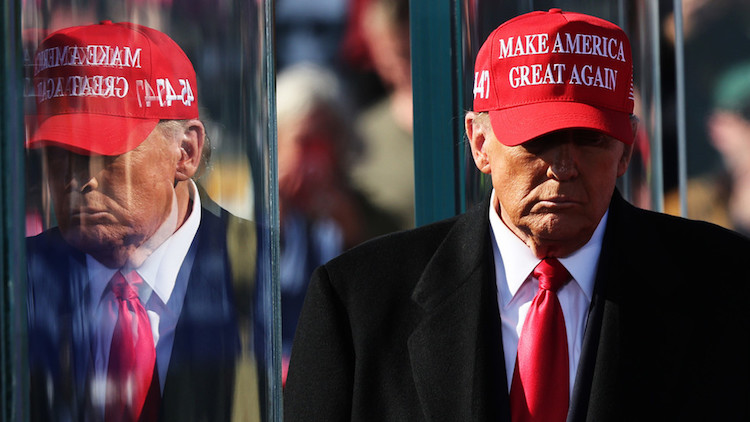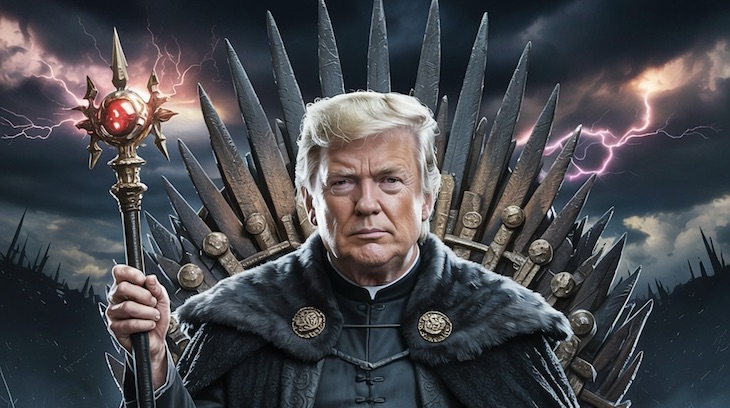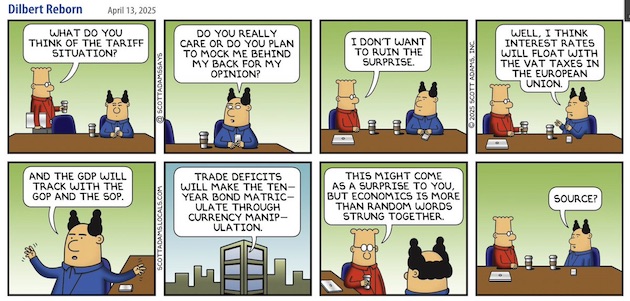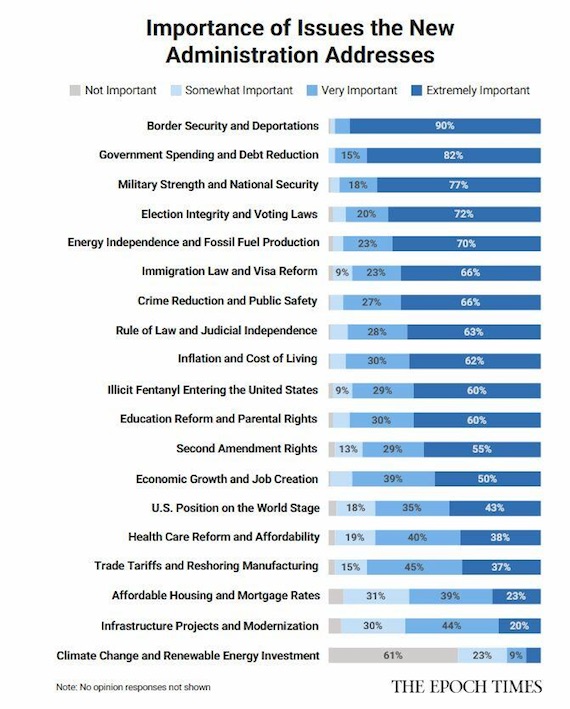
Banksy Bataclan emergency door 2018

The autopen went in to use on day #5 of Biden’s term. Day 5!?
There were 3 different autopens used.
The Autopen use skyrocketed in 2022.
Since this time, emails have proven Biden was not even aware of the pardons.
WE HAVE A HUGE PROBLEM!
— Sheri™ (@FFT1776) September 7, 2025
BLM
Body cams destroyed the BLM movement@MattWalshBlog “Because now with body cams, we can see clearly that basically every officer involved shooting is not only justified, but extremely, absurdly justified.” pic.twitter.com/ryjSdw3Z6D
— jay plemons (@jayplemons) September 6, 2025
"Somebody made $180,000 a year and after 10 years they were worth $100 million dollars. Anybody want to ask questions why, when they don't own any companies, they don't run any businesses? You should. By the way, that's a lot of our politicians."pic.twitter.com/61AIStvVvQ
— Defiant L’s (@DefiantLs) September 6, 2025
Optimus
Optimus will help make Mars habitable for humans doing the hard work long before we ever arrive.
pic.twitter.com/EjZYw1eV14— Tesla Owners Silicon Valley (@teslaownersSV) September 6, 2025
Every home will have an Optimus. pic.twitter.com/615iLfMtMY
— DogeDesigner (@cb_doge) September 7, 2025
Conor
https://twitter.com/CilComLFC/status/1964731216751648805
Chicago
https://twitter.com/EricLDaugh/status/1964735109900439575


Do let’s start the day, and the week, with some optimism.
• Putin and Trump ‘Will Prevent WWIII’ – Kremlin Envoy Dmitriev (RT)
Russian President Vladimir Putin and his US counterpart, Donald Trump, are bringing the end of the Ukraine conflict closer, Kirill Dmitriev, a presidential aide on international economic affairs, has said. He added that the diplomatic efforts of the two men could prevent World War III. Dmitriev, who is also the head of the Russian Direct Investment Fund (RDIF), the country’s sovereign wealth fund, wrote on X on Saturday: “Stalin, Roosevelt & Churchill won WWII. Putin & Trump will prevent WWIII.” He accompanied his post with a picture of the Soviet, US, and British leaders made during the historic 1945 Yalta Conference, which laid the foundations for the post-war order after the defeat of Nazi Germany.
https://twitter.com/kadmitriev/status/1964424166498619598?ref_src=twsrc%5Etfw%7Ctwcamp%5Etweetembed%7Ctwterm%5E1964424166498619598%7Ctwgr%5E4cb35d87737794ec695f4472c5464573d6efc307%7Ctwcon%5Es1_c10&ref_url=https%3A%2F%2Fwww.rt.com%2Frussia%2F624235-putin-trump-prevent-wwiii%2F
He also pushed back against former US ambassador to Russia Michael McFaul, who suggested that Moscow is not serious about negotiations to end the conflict and urged more Western weapons for Ukraine. “Wrong. Peace is close precisely because of Trump-Putin dialogue. Idiotic [former US President Joe] Biden’s approaches failed. Isolation attempts failed. Sanctions failed. Dialogue, respect, understanding each other, problem-solving to find [a] long-term solution is the way,” Dmitriev said. Breaking a long hiatus in top-level talks between the US and Russia, Putin and Trump have held several phone conversations and met face-to-face in Alaska in mid-August.
While no ceasefire agreement was reached at the Alaska summit, the two sides praised the engagement as highly productive. Following the talks, Trump said that Ukraine cannot hope to join NATO or reclaim Crimea. On Friday, Putin struck a cautiously optimistic tone about the prospects for ending the conflict, noting that “there is light at the end of the tunnel,” but noted that if no diplomatic solution is found, “we will have to reach all the goals through arms.” Moscow has insisted that a sustainable resolution to the conflict is possible only if Ukraine commits to neutrality, demilitarization, denazification, and recognizes the new territorial reality on the ground.

“Kiev’s guarantees are cast into doubt, and Moscow can argue convincingly that Europe’s talk of peace is inseparable from its rush to militarize.”
• Macron’s Government Is Collapsing. Ukraine Should Worry (RT)
France’s government is once again on the verge of collapse. Prime Minister Francois Bayrou faces near-certain defeat in a confidence vote over a disputed austerity plan, a showdown that threatens President Emmanuel Macron’s authority at home and casts doubt on Paris’ ability to deliver on its ambitious promises abroad – including security guarantees for Ukraine.
France in meltdown – how bad is it this time? Bayrou has staked his survival on a confidence vote scheduled for Monday, September 8. At issue is an austerity package worth €44 billion, meant to shrink France’s deficit from 5.4% of GDP in 2025 toward 4.6% in 2026. Under EU fiscal rules, the official ceiling is 3%, so Brussels is pressuring Paris to cut deeper. But the plan – which includes reducing public holidays and raising healthcare contributions – has triggered anger at home. Trade unions are preparing strikes, while opposition parties from the far left to the far right have pledged to vote against Bayrou. With his government already in a minority, few in Paris believe he can survive.
Macron’s friend, savior, or dead weight? Francois Bayrou is one of the most familiar names in French politics. He leads the centrist Democratic Movement (MoDem) and has been mayor of the city of Pau since 2014. Back in 2017, his endorsement was crucial for Macron, giving the then-upstart candidate credibility in the political center. As president, Macron briefly made him justice minister, and after Michel Barnier was forced out in late 2024, Bayrou was elevated to prime minister to hold together Macron’s fragile coalition. But with his budget collapsing and support evaporating, the man once hailed as a stabilizer is now being blamed for dragging Macron further into crisis.
How did one budget plan blow up the PM’s career? In France, governments can invoke Article 49.3 of the Constitution to force a bill through the National Assembly, the lower house of parliament, without a vote. The mechanism has existed since 1958 and is legal, but risky: once Article 49.3 is triggered, opposition lawmakers have 24 hours to file a no-confidence motion. If that motion passes, the government falls. Bayrou’s decision to use 49.3 turned his €44 billion austerity plan into a survival gamble. Bayrou chose confrontation over compromise. By tying his austerity program directly to a confidence vote, he hoped to project resolve. The package included unpopular measures such as cutting public holidays and raising healthcare charges. Instead of rallying deputies behind him, the move united nearly every opposition faction. The far-right National Rally, the Socialists, and the leftist France Unbowed all declared they would vote him out, filing no-confidence motions that set up a showdown on Monday. What was meant to be a show of strength turned into political suicide.
Macron without Bayrou – what’s left of his power? If Bayrou falls, Macron is left exposed: he’s going to have to pick between two bad options. He can install a Socialist prime minister to get a budget through parliament, effectively conceding control of domestic policy. Or he can gamble on snap elections, which polls suggest would hand more seats to Le Pen’s National Rally. With Macron’s approval ratings already scraping historic lows, either choice would deepen the sense of a weakened presidency. Commentators warn that if markets lose confidence in France’s ability to control its 5.4% of GDP deficit and 110% debt-to-GDP ratio, the country could face a crisis reminiscent of Britain’s “mini-budget” turmoil under Liz Truss.
Where does Bayrou actually stand on Ukraine? On foreign policy, Bayrou has been a vocal supporter of Kiev. In March 2025, he openly criticized Washington for pushing Ukraine to negotiate peace with Moscow, calling such demands “unbearable.” He argued that pushing concessions would humiliate Ukraine’s Vladimir Zelensky and amount to rewarding Russia. Inside Macron’s government, Bayrou has been one of the strongest advocates of sustained European backing for Ukraine, insisting that Paris must stand firm.
And Ukraine – what happens when Paris goes quiet? For Kiev, French instability brings real costs.
• Cash flow: The €3 billion pledged for 2024 but still not disbursed was meant to cover weapons and financial aid. But such spending has to pass through the annual budget. With Bayrou’s plan collapsing and parliament in revolt, securing new funds will be politically and legally harder for any caretaker government.
• Losing an ally: Bayrou’s exit would strip Kiev of one of its most reliable advocates inside the French cabinet. By contrast, opposition parties – and even voices within Macron’s camp – have been more skeptical of pouring money into Kiev while cutting spending at home. His departure strips Macron of a key advocate inside the cabinet.
• Security guarantees in limbo: Macron has positioned France as the organizer of the “Coalition of the Willing,” where 26 countries promised postwar guarantees for Ukraine, potentially including a reassurance force. Such a plan requires stable leadership, funding commitments, and parliamentary approval. A government in turmoil cannot push through the legal and financial framework needed to turn pledges into reality.
• ‘Armed to the teeth’ peace plan: Macron has also announced an extra €6.5 billion in defense spending for 2025-2027, lifting France’s annual budget from about €47 billion in 2024 to €64 billion by 2027 – a roughly 35% increase. This blurs the line between “peace guarantees” and outright militarization, reinforcing Moscow’s argument that Europe’s settlement talk is cover for escalation.If France wobbles, is the EU still ‘united’? The fallout would reach Brussels as well. The EU relies on France, the bloc’s second-largest economy, to underwrite collective aid to Kiev, yet the €3 billion pledge Paris made for 2024 is in doubt. That damages the bloc’s credibility as a reliable funder at a time when Germany is reluctant to shoulder the costs alone. Macron has also styled himself as the champion of “strategic autonomy,” calling together with German Chancellor Friedrich Merz for a stronger European defense role. But as the Financial Times has noted, those ambitions collide with weak finances and political divisions. With France paralyzed, the EU’s claim to speak with one voice looks hollow, and existing rifts – from Hungary’s open skepticism to Slovakia’s resistance on energy and sanctions – are harder to conceal.
Bottom line Bayrou’s downfall would leave Macron weaker at home and less credible abroad. France’s ability to anchor the EU’s Ukraine policy looks shaky, Kiev’s guarantees are cast into doubt, and Moscow can argue convincingly that Europe’s talk of peace is inseparable from its rush to militarize.

Machine translation?!
• Putin Notes an Underlying Issue Within Ukraine that Impedes Negotiation (CTH)
I have often said that Russian dialogue is essentially different from Western dialogue in that Russian speaking is direct and without pretense. This difference is very visible when outlining positions built on pragmatic acceptances. Recently, Russian President Vladimir Putin was asked about the status of negotiations with Ukraine. President Putin notes some of the internal political issues within Ukraine must be deconflicted in order for discussions to proceed. Without these issues resolved, discussion is futile.
Russian President Vladimir Putin: “First. After all, quite recently, the leadership of the Kyiv regime, mildly speaking unflatteringly of us, and excluded all possibility of direct Contacts. Now we see that they are asking for these contacts, at least Offer. I have repeatedly said that I am ready for these contacts. At the news conference in Beijing, which you mentioned, I said that there is no point in I don’t see much of it. Why? Because it will be agreed with the Ukrainian side is almost impossible on key issues. Even if there is a political will, What I doubt is that there are legal and technical difficulties that are that any agreements on territories must be confirmed in accordance with the Constitution of Ukraine at a referendum. In order to hold a referendum, martial law must be lifted, Martial law is not carried out. If martial law is lifted, it is necessary to immediately hold presidential elections.
After the referendum, if it is held, regardless of the results, it is necessary to obtain a decision of the Constitutional Court. And the constitutional court does not work, because after requests, as I understand it, to the Constitutional Court about the legitimacy of the current government, the court evaded these decisions, and the head of the regime He simply ordered the guards not to let the chairman of the Constitutional Court into the working place. This is the kind of democracy there. And the chairman of the Supreme Court is just sitting in prison on corruption charges. It is well known that Ukraine has enough of this Corruption. But why was it necessary to send the chairman of the supreme court to prison to plant, it is not very clear. Although it is clear that it came to destruction their judicial system as such. This is another of the striking signs of “democracy” current Ukrainian authorities.
Therefore, this endless process is going nowhere. Nevertheless, we said that we are ready for a summit meeting. Listen, the Ukrainian side wants this meeting and offers this one Meeting. I said: ready, please come, we are definitely completely We will provide working conditions and safety, the guarantee is one hundred percent. But if We are told we want to meet with you, but you go there for this meeting, it seems to me that these are just their excessive requests to us. I repeat once again: if someone really wants to meet with us, we Ready. The best place for this is the capital of the Russian Federation, the hero city Moscow.” {SOURCE}
Vladimir Putin: “We have an open dialogue with President Trump. There is an agreement that in case of We can call, contact, and talk to each other. He knows that I am open to these conversations; And he too – I know about it. But so far, we have not had conversations in Europe based on the results of these consultations. Actually, it was difficult for me to do this, I had just come from China, I’m here. We have no problems with communications here. First. Secondly, regarding possible military contingents in Ukraine. This is one of the root causes of Ukraine’s involvement in NATO. Therefore, if there are some troops appear, especially now, in the course of hostilities, We proceed from the assumption that these will be legitimate targets for their destruction.
And if solutions are reached that lead to peace, to long-term peace, then I simply do not see any point in them being on the territory of Ukraine, that’s all. If agreements are reached, let no one doubt that Russia will comply with them in full. We will respect those guarantees security, which, of course, must be worked out both for Russia and for Ukraine. And I repeat once again: of course, Russia will agree to these agreements execute. In any case, no one has discussed this with us on a serious level, that’s all.”

“Brussels, “the capital of diplomacy..”
• Peace in Ukraine ‘Easier Without Brussels Hawks Fueling War’ (Sp.)
It would be easier to achieve a peaceful settlement of the Ukrainian crisis if the “hawks” in Brussels stopped fueling the conflict, the Russian Embassy in Belgium said on Sunday. “It is obvious that if the ‘hawks’ in Brussels and other Western capitals stop fueling the war and support peace efforts, including those undertaken by US President [Donald] Trump, then it will become much easier to achieve peace,” the embassy wrote on Telegram. Instead, the Belgian government is becoming more and more Russophobic, misleading its citizens about Russia’s alleged intent to attack Brussels, the embassy added. Earlier in September, Belgian Defense Minister Thomas Francken said that Moscow was capable of “infiltrating” one of the NATO member states by 2030 under the pretext of protecting the Russian-speaking minority in it, while at the same time attacking Brussels, “the capital of diplomacy,” with drones and missiles.
“The flawed logic offered to ordinary citizens confirms that the current Belgian leadership is rapidly moving away from its previously declared moderation in foreign affairs and is increasingly joining the ranks of the most Russophobic part of the EU and NATO, pursuing an extremely dangerous course of inciting confrontation with our country,” the statement read. The Russian embassy dismissed the allegations, adding that the policies pursued by the Belgian government result in significant economic and social costs, which Belgian citizens are forced to pay.

“..its days are numbered, it would fall apart on its own, there would no point in even leaving it..”
• Orban: EU’s Next 7-Year Budget to Become Last One If Bloc Does Not Change (Sp.)
The European Union is in a state of disintegration, and if there are no radical changes, the next seven-year budget will be the last one for the community, according to Hungarian Prime Minister Viktor Orban.
“I believe that the European Union has now entered a state of disintegration. And if it continues like this — and the likelihood of this is very high, — then the EU will go down in history as a depressing result of a noble experiment,” Orban said, speaking at the opening of the political season in the city of Kotcse. The Hungarian prime minister recalled that the European Union must now adopt a new common budget for 2028-2035.“Even if we manage to pass this budget — which we may have serious doubts about — but if we do, it will be the last seven-year budget of the European Union. If things continue like this, I consider it completely impossible to pass a common budget after 2035,” he emphasized. The Hungarian Prime Minister proposed a possible way out of the crisis: the formation of four “circles,” so that the outermost one would include countries that want to cooperate in the field of security and energy security, which could include not only EU member states, but also Turkey, the United Kingdom and Ukraine; the second circle would include countries that have a common market, similar to the EU’s internal market; the third circle would include eurozone countries with a common monetary policy, and the fourth would unite countries that want a close political union with common political principles.
“Only such a flexible structure of circles can ensure interaction between European countries at different levels of cooperation… If we do not move to this order, the European Union will fall apart,” Orban concluded. Orban previously stated that if the European Union continued its economic policy, its days are numbered, it would fall apart on its own, there would no point in even leaving it, and the period during which something could be radically changed is two to three years. According to the politician, Europe will fall apart before our eyes if the liberals in power in Brussels are not replaced by representatives of patriotic governments, “purges” are needed, similar to those taking place in the United States.

“Britain is being over-run again. First the Romans. Then the Anglo-Saxons. Then the Vikings. Then the Normans. In all previous times, the British fought. But not this time.”
• THE CAMP OF THE SAINTS (Paul Craig Roberts)
The British nation no longer exists. A Muslim immigrant-invader has been appointed Home Secretary. She is in charge of immigration, borders, and the police. When the ethnic British elected Starmer, they signed their death warrant. The 1939 English song, “There’ll always be an England,” turned out to be mistaken.

British political parties have concluded that ethnic British self-rule is racist. The Conservative Party chose an Indian Prime Minister. The Labor Party chose a Muslim Home Secretary. The leader in waiting of the Conservative Party is an African woman. The Mayor of London is a Muslim. Immigrant-invaders are also mayors of 18 British cities, including the largest ones. Rape of white ethnic British females by immigrant-invaders, due to non-enforcement of law, has become a de factor right of immigrant-invaders. Raped ethnic British females who complain about being raped risk arrest for “offensive statements” and “hate crimes” against a protected class–immigrant-invaders. The ethnic British people have recently been protesting their treatment by their government, but with insufficient force to be effective.
Britain is being over-run again. First the Romans. Then the Anglo-Saxons. Then the Vikings. Then the Normans. In all previous times, the British fought. But not this time. The Muslim world has claimed Britain. England as an ethnic British nation is a lost cause.
I do not know who made this music video (it’s really good) but I am dedicating it to @TRobinsonNewEra for all he has done to stand his ground as a journalist who has courageously exposed the egregious actions by his very own British government along with their abuse of their own… pic.twitter.com/Sa1ZIj1zJc
— General Mike Flynn (@GenFlynn) September 6, 2025

“..the Left’s strategy is that of the kamikaze: to destroy Trump at the cost of destroying the Democratic Party.”
• Trump Astride at 7 Months (Victor Davis Hanson)
President Donald Trump’s greatest achievement within six months was simply ending illegal immigration as we had once known it—without “comprehensive immigration reform” or any other rhetorical trickery. It remains difficult to find, much less deport, the 10 to 12 million illegal aliens who entered in the last four years. Those who helped break the law, by design or indifference, now believe it was moral to destroy federal immigration law but immoral to uphold it. And it is still unclear whether former President Joe Biden’s handlers deliberately sabotaged their own border for political and demographic purposes out of sheer orneriness or utter incompetence. Many of the Left’s cherished totems—massive Green New Deal subsidies, the diversity/equity/inclusion industry, biological males competing in women’s sports, and the U.S. Agency for International Development revolving door—are either comatose or in their death throes.
The historic drop-off in military recruitment reversed shortly after Trump took office. Republican voter registration is up, and Democrat registration is down. Abroad, Trump finds remarkable successes. For now, there are pauses in the fighting between India and Pakistan, Egypt and Somalia, Cambodia and Thailand, Rwanda and Congo, Serbia and Kosovo, and Armenia and Azerbaijan. Much credit is due to Trump for brokering ceasefires. Iran will not get a bomb in the next four years—as seemed likely when Biden left office. The Middle East’s current most grotesque terrorist cadres and states—Iran, Hezbollah, Hamas, and the Houthis—are far weaker than they were when Trump entered office in January. There is at least some engagement in envisioning the outlines of a ceasefire in Trump’s inherited Ukraine War.
The rub is finding the degree of ordnance necessary to convince Putin that increasing Russia’s casualties to more than one million will endanger his own dictatorship sooner than destroy Ukraine. Breaking up the new three-billion-person China/India/Russia nexus hinges on ending the war. The economy is still strong. Gas prices are at historic lows. Increases in all types of energy production proceed full bore. Current gross domestic product, inflation, unemployment, and the stock market—all at one time or another said to be in a crisis state—remain strong. Talk of an impending recession or hyperinflation is mostly muted. No one quite knows either the full effects of Trump’s tariffs—especially given the injunctions issued by left-wing district justices—or of the promised over $10 trillion in foreign investments.
Much of Trump’s agenda will hinge on whether interest rates are lowered, Republicans survive the midterms, and the degree to which unelected left-wing lower-court justices can be stopped from hijacking the Constitution and de facto running the country. As for the Democrat opposition, there is no counter agenda, no shadow government responsible leadership, and no willingness to craft bipartisan legislation. Instead, the Left’s strategy is that of the kamikaze: to destroy Trump at the cost of destroying the Democratic Party. Otherwise, Democrats seek to prove so obnoxious in demonizing Trump that they create such mass hysteria that the weary electorate figuratively lies down, closes its eyes, covers its ears, and screams nonstop, “Make them all go away!”
Former foul-mouthed vice presidential candidate Tim Walz is now reduced to a ghoulish status. He recently boasted to an audience that rumors of Trump’s death—who survived two assassination attempts last summer—will thankfully one day prove true. The top of the failed ticket, Kamala Harris, wanders aimlessly without an office, constituency, audience, or ideas. To remain viable, she knows she must continue touring and speaking. But Harris accepts that the more anyone hears her word salads, the more they will remember her 2024 train wreck. Head of the Democratic Party, Ken Martin, now screams that Trump is a fascist. But by what standards does he judge? Did Trump try to take his rivals off state ballots? Does he advocate for destroying the filibuster, the Electoral College, and the 156-year-old nine-justice Supreme Court, or packing the Senate by admitting two new states?
Are local, state, and federal prosecutors—a la Bragg, James, Smith, and Willis—coordinating with the White House and the Justice Department to indict Trump’s current chief adversaries, such as Gavin Newsom, Kamala Harris, or Josh Shapiro? Did Trumpers hire a foreign spy to concoct a fake hit dossier on Democrat grandees? Are his subordinates now spreading it to the media. Are 51 conservative former CIA contractors and retired spooks swearing that Newsom or Harris is working with the Russians, Chinese, or any of our enemies? The greatest Democrat fear? That it has so institutionalized excessive executive orders, ad hominem lawfare, lower-court usurpation, state nullification of federal law, and federal intervention in higher education, the energy industry, and the nation’s open spaces that their own legacies empowered Trump and now will boomerang upon themselves—as the public applauds the karma.

“And nearly five years later, every single thing Kingston predicted about the CV19 bioweapon vax has been proven true.”
• Truth About CV19 Vax Awakens Public – Karen Kingston (USAW)
Karen Kingston is a biotech analyst and former Pfizer employee that warned in her very first appearance on USAWatchdog in September of 2021 that the “CV19 Vaccines are Poison.” Nearly five years ago, Kingston said, “They are only intended to poison, mutate, cause genetic mutations, and kill adults and children. They contain advanced medical technologies called lipid nanoparticles that are made of hydrogel, which contain graphene oxide (poison to humans) . . .. There are strong immunosuppressants, different types of chemotherapies that could suppress your immune system while being injected by something that is going to highjack your immune system . . .. and actually produce this disease-causing genetic material that can cause cancers, inflammatory diseases, genetic disorders, infertility and etc.”
And nearly five years later, every single thing Kingston predicted about the CV19 bioweapon vax has been proven true. The latest example showing the deadly and debilitating disaster that is the CV19 vax comes from a new peer reviewed study that “Finds COVID-19 ‘Vaccines’ Increase Risk of Multiple Cancers — CONFIRMS Fears of ‘Turbo Cancer’ Epidemic.” There are also diseases of “epidemic” proportions with heart, immune system and brain function, to name a few more. Maybe this is why Florida, just today, ended all vaccine mandates. Many of these ‘vaccines’ contain deadly and debilitating mRNA. This ban also includes the CV19 “vaccine.” Kingston reports, “The Florida Department of Health, in partnership with the governor, is going to be working to end all vaccine mandates in Florida law, ALL of them, EVERY LAST ONE OF THEM,” says Florida Surgeon General Dr. Joe Ladapo.
President Trump is also questioning the CV19 vaccines and is demanding the vaccine makers justify the safety of their products. Trump said in part on Truth social, “With CDC being ripped apart over this question, I want the answer, and I want it NOW. . .. I hope OPERATION WARP SPEED was as “BRILLIANT” as many say it was. If not, we all want to know about it, and why??? Kingston says, “President Trump is demanding that Pfizer shows its data. . .. One report from June of 2022 from Pfizer and people calling in and they recorded it. Pfizer recorded nearly five million adverse (CV19 vax) events across nearly 1.5 million people. The most common were neurological. There were nearly 750,000 nervous system disorders. . .. This is really scary. . .. This was in a period of 18 months.” Kingston says there were at least a dozen other CV19 vax studies that were never released and were kept from the public.
Did Pfizer stop the shots and alert President Trump about this? NO! Now, even top former CDC officials are trashing the CV19 shots. Kingston says, “Dr. Demetre Daskalakis, a CDC director, just repeated what HHS Secretary Kennedy said in 2021, and that is the CV19 vaccine is ‘the deadliest vaccine ever made.’ (So-called fact checkers said back in 2021 this was not true. In 2025, with millions of victims dead, it most certainly IS TRUE.) My point is Daskalakis repeated what Kennedy said in 2021 recently on MSNBC. They are putting it out there. They can’t undo the damage that has been done. RFK Jr. just revoked more than $500 million in research projects of mRNA. There have been a lot of movements, and it is interesting Trump is calling on the drug companies to step in and disclose their information. The last time they disclosed their information, it was horrible. . .. By the way, a lot of data they submitted to the FDA has never been released.”
Multiple top people at the CDC recently have quit or been fired. Also, the Emergency Use Authorization (EUA) for the CV19 vax has been terminated. This move makes many now liable for adverse vaccine reactions. Maybe this is why CVS and Walgreens have restricted the CV19 vax after this announcement. Kingston calls what is happening now “a watershed moment of awakening” for the people who want the ugly truth to come out for the CV19 vax. Kingston says, “It’s all criminal, and this is what I have always said. This is the data.”
Now, Kingston says people need treatment to “detox” from the ill effects of the CV19 vax. Let’s hope the treatment starts soon and we don’t wait another five years to start saving lives of the CV19 vaccine injured.

“DANCING FUCKING NURSES!
See, that’s why.”
• Thoughts on Robert F Kennedy Jr Congressional Testimony (CTH)
Health and Human Services Secretary Robert F Kennedy Jr. appeared before the Senate Finance Committee after U.S. Centers for Disease Control and Prevention Director Susan Monarez was fired and four senior officials have resigned amid growing tensions over vaccine policies and public health directives. I have not commented on what happened during the hearing, nor shared the numerous confrontational segments of wide distribution, because the background context of the hearing itself is challenging to discuss in stable mindset without blowing a blood pressure cuff. However, here goes.
COVID-19 is the name of the disease caused by the SARS-CoV2 virus. Severe Acute Respiratory Syndrome (SARS) – Corona Virus Disease of 2019 (CoV2), colloquially referred to as “COVID-19”, was a man-made influenza (flu) virus created in a laboratory in Wuhan China, using “gain of function” research grants from the United States government. The virus escaped the laboratory and became a pandemic influenza virus as it spread throughout the world. The response to the release of the virus, the mitigation effort, was organized by global intelligence services and coordinated through western military cooperation. The military and intelligence services coordinated the mitigation efforts with various national health services, the compliance rules and subsequent restrictions upon Americans were a downstream consequence.
Everything within the mitigation process was fraught with governmental fear, widely ridiculous panic, over-the-top reactions and a level of political pressure never before seen in modern history. All of the rules and restrictions were genuinely crazy at the time events were happening, and in hindsight review none of the mitigation efforts made any sense whatsoever. Commonsense was thrown out the window as mass formation psychosis spread like wildfire with a hurricane. Approximately a year after the COVID-19 virus was unleashed a quickly created and untested genetically modifying serum called a “COVID-19 vaccine” was then promoted to the world as the most important element in virus mitigation. There was never, NEVER, a more heavily pushed and forced mandate by the entirety of western collective government, and global intelligence systems, as the modern compliance effort to force citizens to take the “vaccine.”
Ultimately, the vaccine rules, demands, mandates and economic compliance pressures, divided the various nations into two sets of people: (1) those who took the vaccine, and (2) those who did not. Much like the COVID-19 mitigation rules themselves, the pressure to take the vaccines was unrelenting. The United States Government, through various emergency declarations and legal processes, mandated compliance forcing the vaccine upon people who did not want to take the untested, unverified and eventually determined unsafe genetically modifying serum. Within the control systems deployed by government, including the panel who were recently questioning HHS Secretary Robert F Kennedy Jr., non-compliance with the “vaccine” mandate was not optional. Every regulatory and enforcement element of government was deployed to coerce and ultimately force compliance to take the vaccine.
The U.S. Constitution and the Bill of Rights (first 10 amendments) was subverted, manipulated and legally twisted at the behest of government officers, including President Joe Biden using emergency powers. Families were torn apart as the dynamic of the compliant -vs- the non-compliant played out in every relationship. Socially, the cohesive nature of acceptable behavior was destroyed. Children were forcibly taken for vaccinations and parents who would not comply with the vaccine were legally held accountable, threatened, ostracized and ridiculed. During the panic, industries were taken over by government, hundreds of thousands of unnecessary and unneeded ventilators were built, portable hospitals were erected in football stadiums and convention centers by military and national guard, they were never used; forced lockdowns were mandated and travel was restricted by local, state and federal authorities.
People were not permitted to work; the economy was shut down and the workforce was divided into essential -vs- nonessential positions. All of it was madness. In the USA the entire weight of the scientific community and healthcare industry was leveraged by the intelligence agencies, military and government politicians, to force compliance with all the rules and regulations as determined by “experts” in the field of health and science. This was the largest psychological control operation ever deployed against the American people, and anyone who stood up against the system of forced compliance was immediately identified, removed, shutdown, had their social media presence blocked, and every element of the government regulation used to silence their dissent.
The President Biden administration used their emergency powers to collaborate with and force social media platforms and tech systems to control the electronic messaging and communication of the American people. Private industry was forced into compliance and small business were forcibly shutdown if they did not adhere to the rules and regulations of the various enforcement mechanisms. The federal, state and local police were used as armed compliance officers to monitor the behavior of the American people and control their activity. Government checkpoints were put into place to verify status as “essential” during travel, and vaccination compliance documents were required for commerce and social engagements.
Four years later the larger American population now realizes all of what took place was built on a foundation of fraud and lies. Four years later we discover the rules, regulations and compliance techniques were carried out with no official scientific basis. Worse still, the untested and unsafe vaccine -forced upon millions of Americans- is now identified as killing hundreds-of-thousands of innocent victims who were completely healthy until they were injected with a genetically modifying serum of unknown consequence. To protect themselves from the consequences of their conduct, all of the officials who engaged in the process of mandated vaccine deployment are now hiding the data in an effort to avoid the consequences.
This is the background for newly appointed and highly skeptical HHS Secretary Robert F Kennedy Jr to appear before congress and explain the changes he is making to a U.S. healthcare system that was shown to be completely broken by the example of SARS-CoV-2. I have not previously commented about the RFK Jr hearing, genuinely because discussing…. THE MURDEROUS FUCKING ACTS OF BIDEN’S GOVERNMENT DURING COVID-19 FORCED VACCINATIONS… is beyond my capacity for stable-minded discussion. Congress sits there, arguing narratives from perches, as if we the people have completely forgotten the madness that took over the entire healthcare system.
DANCING FUCKING NURSES!
See, that’s why.

“..the reality is that he wants to occupy our city and break our Constitution..”
• Trump Threatens ‘War’ On Chicago Over Immigration (RT)
US President Donald Trump has ramped up threats to deploy federal troops to Chicago for an immigration crackdown, warning that the city “will soon find out” why he renamed the Defense Department the “Department of WAR.” The warning follows Trump’s order to dramatically ramp up deportations in Democrat-led cities after riots swept Los Angeles earlier this year. On Saturday, Trump posted on Truth Social what appears to be an AI-generated meme showing him in military uniform with the Chicago skyline, helicopters, and flames in the background. Above the image, Trump wrote: “I love the smell of deportations in the morning… Chicago about to find out why it’s called the Department of WAR.”
The caption to the meme read: “Chipocalypse Now,” a play on the 1979 film ‘Apocalypse Now’, which includes the line: “I love the smell of napalm in the morning.” Trump offered no further details.Trump’s warning has drawn massive pushback from local officials. Illinois Governor J.B. Pritzker wrote on X that the president “is threatening to go to war with an American city,” adding, “Illinois won’t be intimidated by a wannabe dictator.” Illinois Representative Mike Quigley told Politico at Chicago’s Mexican Independence Day parade that Trump spoke “like a true tyrant.” “The President’s threats are beneath the honor of our nation, but the reality is that he wants to occupy our city and break our Constitution,” Chicago Mayor Brandon Johnson wrote on X.
The President’s threats are beneath the honor of our nation, but the reality is that he wants to occupy our city and break our Constitution.
We must defend our democracy from this authoritarianism by protecting each other and protecting Chicago from Donald Trump. pic.twitter.com/B7AH1ufByH
— Mayor Brandon Johnson (@ChicagosMayor) September 6, 2025
Illegal immigration has been a central focus of Trump’s presidency. On Inauguration Day, he vowed to deport “millions and millions” of undocumented immigrants. Since then, he has expanded border security, tripled Immigration and Customs Enforcement detention funding, cut humanitarian programs, and detained thousands of illegal migrants, among other regulatory measures. Saturday’s post adds to Trump’s repeated threats to include Chicago in his list of cities targeted for expanded immigration enforcement. In June, his administration deployed National Guard troops to Los Angeles, followed by Washington, DC, after mass pro-immigration riots. Trump has also suggested that Baltimore and New Orleans could face similar measures.

Over 50 years.
“..564,258 deaths per year, similar to the global mortality burden associated with armed conflict..”
• 29 Million Deaths Linked To EU and US Sanctions (RT)
Western sanctions contributed to nearly 29 million excess deaths worldwide over five decades – a toll comparable to that of wars, according to a recent study. The research, published last month in the Lancet Global Health, has gained attention around the world. Examining age-specific mortality in 152 countries from 1971 to 2021, using statistics from the Global Sanctions Database, researchers compared mortality rates before and after sanctions, tracking long-term trends to estimate their toll in excess deaths. They focused on three sanctioning authorities: The UN, the US, and the EU (and its predecessor). “We estimate that unilateral sanctions over this period caused 564,258 deaths per year, similar to the global mortality burden associated with armed conflict,” the authors noted, with a total of 28.8 million deaths across the 51-year span.
We found the strongest effects for unilateral, economic, and US sanctions, whereas we found no statistical evidence of an effect for UN sanctions. Most excess deaths occurred among the most vulnerable – the very young and the elderly. “Our findings reveal that unilateral and economic sanctions, particularly those imposed by the USA, lead to substantial increases in mortality, disproportionately affecting children younger than 5 years,” the study said, noting that the age group accounted for 51% of the total death toll. The report found that the sanctions undermine economic and food security, often causing hunger and health problems among the poorest. Additionally, the dominance of the dollar and euro in global transactions allowed the US and EU to amplify the impact of their sanctions.
At last year’s BRICS summit, member nations called for “unlawful unilateral coercive measures” to be eliminated, warning of their disproportionate impact on the most vulnerable. Members have increasingly avoided the dollar “to shield themselves from US arbitrariness,” Moscow has said. At the Shanghai Cooperation Organization (SCO) summit in Tianjin this week, Chinese President Xi Jinping called for a fairer global governance system based on mutual respect and opposition to Western dominance. Russian President Vladimir Putin welcomed the proposal as especially relevant when “some countries still do not abandon their desire for dictatorship in international affairs.”

What i see coming is deep alright.
• US in ‘Very Deep Negotiations’ With Hamas to End Gaza Conflict – Trump (ET)
The United States is in “very deep negotiations with Hamas” to bring an end to the current conflict in the Gaza Strip, President Donald Trump announced on Sept. 5. Hamas, which continues to hold hostages taken from Israel on Oct. 7, 2023, has so far rejected any deals to end the nearly two-year Israeli military campaign across the Gaza Strip, despite widespread death and destruction throughout the territory. Addressing the ongoing hostage situation and the surrounding conflict, Trump reiterated calls for Hamas to release all of the remaining hostages in a bed to end the carnage. “We said let them all out right now. Let them all out, and much better things will happen for them. But if you don’t let them all out, it’s going to be a tough situation. It’s going to be nasty. That’s my opinion. Israel’s choice, but that’s my opinion,” the president said during a White House press briefing.
In recent weeks, Israeli forces have been ramping up operations in Gaza City, which is located towards the northern end of the embattled strip of territory. The Israeli military has claimed responsibility for strikes targeting high-rises in the city, and footage has shown strikes toppling at least one tower there. As many as 20 captives may still be alive, though Trump said “there could be some that have recently died, is what I’m hearing.” “I hope that’s wrong,” he added. The bodies of around 30 more captives also remain in the Gaza Strip. Hamas released a video on Sept. 5 with Israeli hostage Guy Gilboa-Dalal. In the video, apparently dated Aug. 28, Gilboa-Dalal states that he and other hostages are being held in Gaza City and fear they will be killed in the intensifying Israeli operation.
Trump offered few specifics about what Hamas is requesting in negotiations for the release of the remaining hostages. “They’re asking for some things that are fine,” Trump began, when asked about Hamas’s demands, but said the initial Hamas attack on Israel—in which around 1,200 were killed and thousands more were wounded—must be taken into consideration in the negotiations. Throughout the conflict, Israeli Prime Minister Benjamin Netanyahu has articulated a goal to ensure Hamas is defeated and that the Gaza Strip can never become a haven for the group or similar militants opposed to Israel.
In an Aug. 10 speech, Netanyahu said the Gaza City takeover plan is not part of an indefinite Israeli occupation of the strip. At the same time, he indicated the plan is for Israel to have “overriding security responsibilities” for the territory, while allowing a “non-Israeli, peaceful civil administration. Netanyahu said Gaza’s post-Hamas civil authority must be one that “doesn’t educate its children for terror, doesn’t pay terrorists, and doesn’t launch terrorist attacks against Israel.” Netanyahu said these terms would disqualify the Palestinian Authority—which has partial governing authority in the West Bank—from stepping in as Gaza’s eventual civil authority.
In a Sept. 6 statement, Hamas representatives said, “The movement affirms its openness to any ideas or proposals that achieve a permanent ceasefire, a comprehensive withdrawal of the occupation forces from the Gaza Strip, unconditional entry of aid, and a real prisoner exchange through serious negotiations via mediators.”

“rich natural resource reserves, estimated at $75 trillion..”
• Globalists’ Attacks on Russia Linked to Its Rich Natural Resources – Dmitriev (Sp.)
Russian Federal Agency for Mineral Resources (Rosnedra) has completed the development of a geological exploration program for new Russian regions and is coordinating this work, the Agency’s representative earlier said. Globalists’ attacks on Russia are linked to its rich natural resource reserves, estimated at $75 trillion, Russian Direct Investment Fund CEO Kirill Dmitriev, who is also the Russian president’s special representative for investment and economic cooperation with foreign countries, says.
“Russia is Number 1 in the world with an estimated $75 trillion natural resource value. That’s also why it is constantly attacked by globalists and the deep state. Russia has partnered and will build new partnerships with the leading countries for joint resource development,” Dmitriev said on X. According to estimates by the international agency Statista for 2021, which RDIF CEO cites, after Russia, the top five countries in terms of natural resource reserves include the United States ($45 trillion), Saudi Arabia ($34 trillion), Canada ($33 trillion) and Iran ($27 trillion).

“..capital from all over the world will be trying to get off the railroad tracks because gold and silver cannot default.”
• Gold & Silver Sniffing Out Risk & Fear – Bill Holter (USAW)
Precious metals expert and financial writer Bill Holter worked side by side with his business partner Jim Sinclair for more than a decade. No two people knew more about markets and money than them. Two years ago, Sinclair, aka “Mr. Gold,” passed away. Now, the baton has passed to Holter, who is the new “Mr. Gold.” Holter warns one explosive new all-time high, hitting day after day, for the yellow metal is signaling big trouble coming. Holter explains, “There is a huge breakout. In my opinion, the metals market is sniffing out risk and fear. . .. They funded literally trillions of dollars by borrowing in yen. Now, what has happened, the Japanese yield curve has gone from basically zero to over 1.6 % on a ten-year (bond) and 3.2% on a 30-year (bond).
So, that carry trade now is being squeezed because the yen has gone higher . . . your cost to carry has gone higher because Japanese yields have gone higher. So, the gold market is looking at the Japanese carry trade in the process of blowing up. It is sovereign bonds across the world. If you look at interest rates worldwide, they are actually going higher.” If the Fed cuts interest rates later this month, it may not be good news. The bond market could rebel. Holter says, “You could see bond prices drop and yields go higher. There is also a very high probability with lower Fed rates that the dollar weakens.” Earlier this year, Holter called the global economy a hyper-levered house of cards. The leverage has gotten worse, much worse.
Holter says, “There is a turbocharge to this, and when I say turbocharge, it’s fear. It’s fear of bankruptcy. It’s fear of default. The world is clearly over-levered, and there are going to be sovereign defaults left and right going forward. The only two monies that cannot default on the planet are gold and silver.” So, is there going to be a big crash coming soon? Holter says, I don’t know if it is going to be September, October or whatever, but you look at the math and the valuations. The valuations are ridiculous. Look at the math on sovereign debt all over the world. Look at the math on the amount of debt outstanding and margin debt, and this is a huge credit bubble. Credit bubbles do not go away quietly. Credit bubbles burst and markets collapse. The problem now is there is so much debt in the system and the system is so big the central banks together cannot stand against the tsunami of bankruptcies that are coming. There is no white knight this time.”
Holter (aka, the new Mr. Gold) says, “The vast majority of wealth will seek a safe haven that cannot evaporate or be taken away. It’s going to be gold and silver. You are going to see a bull market in gold and silver unlike any bull market in any field ever. . .. Gold and silver will make financial history because capital from all over the world will be trying to get off the railroad tracks because gold and silver cannot default.” In closing, Mr. Gold says if you just divide the amount of official gold held in the US Treasury by the official US government debt, you get about $135,000 per ounce gold price and around $6,700 per ounce silver price. Holter says with $2 quadrillion in derivative debt, who knows how high the price of gold and silver can go. One thing for sure is gold and silver cannot default.

Well, the jobs numbers were pretty bad… Let’s start there.
• Bessent Doubles Down On Tariffs, Predicts Economic Surge (ZH)
Treasury Secretary Scott Bessent pushed back Sunday against growing concerns that the U.S. economy is sliding toward a “jobs recession,” defending the administration’s trade policies, tariffs, and fiscal strategy while signaling confidence that growth will accelerate by year’s end. In a wide-ranging interview on NBC’s Meet the Press (full interview at the bottom), Bessent rejected forecasts from economists at Moody’s Analytics and elsewhere who have warned that slowing hiring trends and manufacturing job losses point to deeper weakness. Instead, he argued that recent data is noisy, revisions are likely, and that President Donald Trump’s economic agenda remains on track to deliver a “substantial acceleration” in the fourth quarter.
Host Kristen Welker opened the interview by citing Moody’s chief economist Mark Zandi, who recently described the U.S. slowdown as a “jobs recession.” Asked if he agreed, Bessent pushed back: “We’re not going to do economic policy off of one number,” Bessent said. “Good policies are in place that are going to create good high-paying jobs for the American people.” He added that August is “the noisiest month of the year” for employment data and stressed that significant revisions are common: “We need good data before we jump to conclusions.” Pressed on manufacturing job losses since the April rollout of the administration’s new tariffs, Bessent urged patience, noting that factories “can’t be built overnight” citing a “record amount of investment intentions” already underway.
He highlighted July’s passage of the administration’s flagship tax and infrastructure package – the One Big Beautiful Bill, which included full expensing for factories and equipment. According to Bessent, many companies were “holding back” investment until the bill passed and are now planning major capital expenditures and expansions. Still, U.S. manufacturing employment has declined by 42,000 jobs since April, even as the White House has promised a “manufacturing renaissance”” Bessent attributed some of the perceived weakness to flawed data collection and suggested that upcoming revisions could wipe out hundreds of thousands of jobs previously reported under the Biden administration. “We’re going to get revisions next week that may be as big as an 800,000-job downward revision,” Bessent said. “I’m not sure what these people who collect the data have been doing, but we need good data.”
The interview grew tense as Welker pressed Bessent on widespread reports from U.S. manufacturers that tariffs are increasing costs and forcing layoffs. Companies including John Deere, Nike, Black+Decker, and the Big Three automakers have warned investors that tariffs are adding hundreds of millions – in some cases billions – in unexpected expenses. Goldman Sachs recently estimated that 86% of tariff costs have ultimately been borne by U.S. companies and consumers. Bessent rejected those conclusions outright. “For every John Deere, we have companies telling us the tariffs have helped their business,” he said, citing meetings with executives at Treasury. “They’re increasing capital expenditures and expanding employment. And if things are so bad, why was GDP up 3.3% and why is the stock market at a new high?”
When asked directly whether tariffs amount to a tax on U.S. consumers, Bessent responded flatly: “No, I don’t.” He also dismissed Goldman Sachs’s analysis, quipping: “I made a good career trading against Goldman Sachs.”
Scott Bessent laughs in Kristen Welker’s face when she quotes Goldman Sachs
Q: Do you acknowledge these tariffs are a tax on the American consumer?
Bessent: No, I Don’t…. You’re quoting Goldman Sachs. I’ve made a good career trading AGAINST Goldman Sachs.
Haha, love this… pic.twitter.com/eUNswuvRYi
— MJTruthUltra (@MJTruthUltra) September 7, 2025

X thread.
• Once Were Relevant (el gato malo)
i don’t think western europe and canada understand how little their opinions matter anymore. once, at least europe was relevant, but today? both are failing, no-growth, collapsing demographic failures that are rapidly losing anything like their high trust, flourishing cultures as they are eaten by the davos/WEF culture collapsers and the occupying armies they invite. both are dying regimes held up by censorship and political suppression. they are overrun by barbarian invaders to whom they are too effete and butthurt to advocate resistance. the contrast with eastern europe, which refuses to fall for this societal suicide pact (likely because they have living memory memories of communism) could not be more stark in both economics and culture.
of course the EC elites hate an american return to vibrance and strength. it highlights how badly they themselves lack this. their misery demands company that america will no longer provide. it will be fun to watch and see if they can learn to defend themselves. it’s not that america is dying. it’s that we’re getting ready to live again by escaping this nonsense. it’s europe who is on the table in critical care. i hope their smug senses of self-importance can keep them warm in the coming conquest by caliphate and the green death of watermelon politics. those who advocate the US imitating the serfdom surrender of europe and canada have been far too dominant for far too long. and their 15 minutes are up. i wonder when spencer will realize this?




https://twitter.com/EricLDaugh/status/1964688908857250278
Q: “What would you say is the last great success that our public health agencies have had?”
RFK JR: “I don't think there have been successes. I think we've seen a 30 or 40 year decline in the agency because it's been infiltrated by the pharmaceutical companies” pic.twitter.com/g4ug9pqysP
— Chief Nerd (@TheChiefNerd) September 7, 2025
These hearings are performative theater. These senators don't want to hear the answers to the questions they ask me. They want to make a little speech and shut me down. pic.twitter.com/nVQ9qBu7uT
— Secretary Kennedy (@SecKennedy) September 7, 2025
— Jamel Holley (@jamelholley) September 7, 2025
RFK Jr: “My job is to FIRE the people who were responsible for masking our children with no science, for social distancing orders with no science.” pic.twitter.com/K3KAefMrSG
— Holden Culotta (@Holden_Culotta) September 7, 2025
True story… pic.twitter.com/qHVPufvnCO
— Robert W Malone, MD (@RWMaloneMD) September 7, 2025
Owls
Me: Look, but don’t make it obvious..
My friends: pic.twitter.com/ikbVgwKPcv
— Buitengebieden (@buitengebieden) September 7, 2025
Scott
— Elon Musk (@elonmusk) September 8, 2025

Support the Automatic Earth in wartime with Paypal, Bitcoin and Patreon.





































